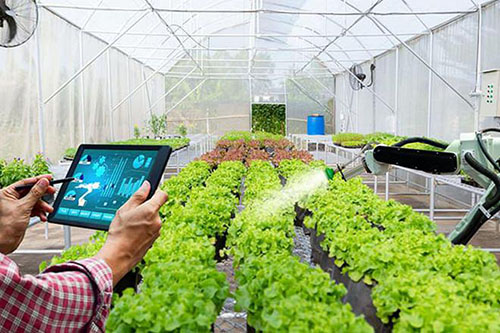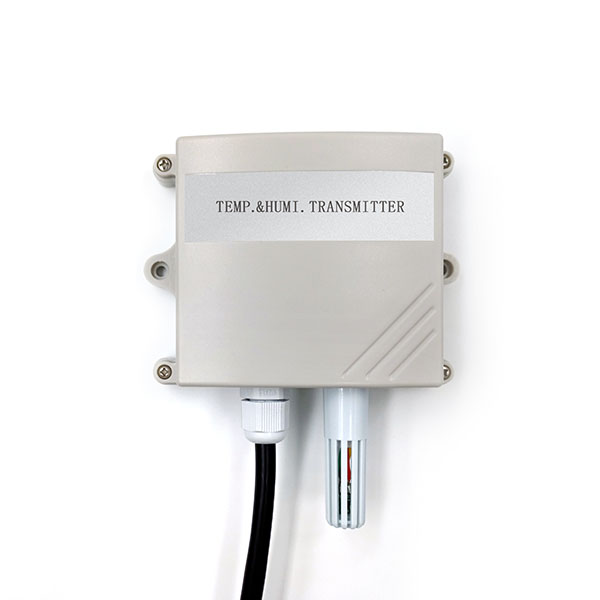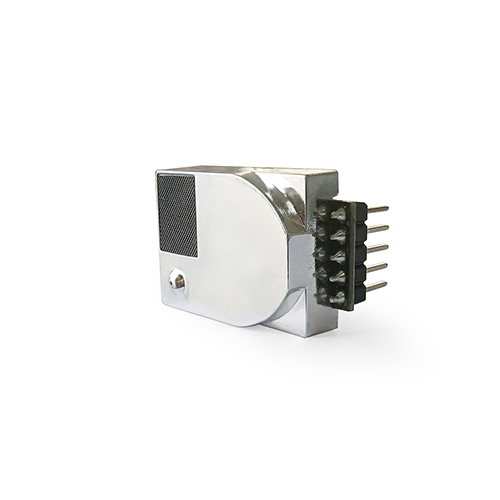Smart agriculture sensors help agricultural development
Smart agriculture is a new agricultural model that utilizes modern technology and information technology to improve agricultural productivity and sustainable development.
Smart agriculture involves numerous aspects of technology and applications, providing more advanced and intelligent solutions for agriculture. These include the Internet of Things, big data analytics, drones, remote sensing technology, sensor technology, intelligent control, and more. The application of these technologies can help farmers achieve accurate positioning and monitoring, rational and precise pesticide application, efficient and precise water and fertilizer management and irrigation, as well as intelligent control of agricultural machinery.
Among them, the application of Smart agriculture sensors technology in monitoring and management is mostly reflected in the monitoring of the environment around the growth of crops, such as soil, atmosphere and water environment.

Intelligent monitoring system for greenhouses
Different plants and the different growth stages of different plants on the shed temperature, humidity requirements vary greatly, want to improve the yield of vegetables and fruits in the greenhouse, we need to provide suitable conditions for the growth of crops, timely grasp of the shed air temperature and humidity, soil temperature and humidity, soil nitrogen, phosphorus and potassium, and carbon dioxide, light intensity and other parameters of the change, and intervention to regulate the realization of the agricultural greenhouse scientific, intelligent, high efficiency management.
Through intelligent hardware, Internet of Things, big data and other technologies to upgrade and transform the traditional agricultural greenhouses, to build the whole intelligent and efficient monitoring and control management system, relying on a variety of sensor nodes deployed in the agricultural production site, such as environmental temperature and humidity, carbon dioxide concentration, light intensity, soil moisture, soil nitrogen, phosphorus and potassium, and wireless communication network to achieve intelligent sensing of the agricultural production environment, smart alarms, intelligent analysis, to provide precision planting, intelligent analysis for agricultural production. Provide precise planting, visualization management and intelligent decision-making for agricultural production.
The greenhouse intelligent control system can also perform various switching tasks such as automatic spraying, automatic drip irrigation, automatic fertilizer application, automatic wind exhaustion, automatic shuttering, etc. according to the collected sensor parameters and strategies.
Farm Intelligent Monitoring System
In the farm intelligent monitoring system, through the Internet of Things sensors, intelligent control cabinets and other equipment connection, online collection of air temperature and humidity, light level, hydrogen sulfide/ammonia concentration, carbon dioxide concentration, etc., through wireless transmission to the Internet of Things cloud platform, access to real-time data of the breeding environment, to achieve online monitoring.
At the same time with the logic control function of the cloud platform, it carries out process monitoring, linkage of temperature booster, ventilator, feeder and other equipment, realizing the farm’s timed water feeding, automated regulation of the environment, and historical data management.
CO2 sensor: Detect the carbon dioxide content in the livestock and poultry house to decide whether ventilation is needed.
NH3 Ammonia Gas Sensor, H2S Hydrogen Sulfide Gas Sensor: It is used to detect the ammonia and hydrogen sulfide content in the environment of the livestock and poultry house to decide whether it is necessary to remove manure and ventilate.
Aquaculture Intelligent Monitoring System
Affected by climate change, water pollution and other factors, the limitations of traditional aquaculture are becoming more and more prominent. Water temperature, diseases, environmental pollution, etc. all affect the yield and quality of finished aquaculture products.
With the steady development of the economy and the continuous progress of science and technology, the informationization and intelligence of aquaculture has become an inevitable trend in the development of contemporary aquaculture. Aquaculture intelligent farming conditions become controllable, the farming environment is no longer subject to the limitations of the weather, aquaculture water temperature, dissolved oxygen, PH value, ammonia and nitrogen content and so on a series of important factors affecting the body of water have become controllable and adjustable.
Intelligent agriculture is the fundamental way out of agriculture, but also the current national vigorously develop the industry, with the continuous development of Internet of Things technology, data storage, comprehensive perception, data on the cloud and other ways to make the intelligent agriculture transmission network to further expand the Internet + intelligent agriculture model continues to emerge, intelligent agriculture is also glowing with a new power.







